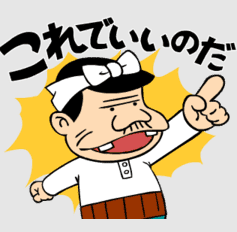これ (in kanji 此れ) is a very common term in Japanese. これ is a pronoun and means this, this one.
これ is used to indicate something that is close to the speaker, in physical, temporal, but also emotional terms.
これ belongs to the Kosoado series of Japanese demonstratives.
Characteristics of これ
この comes from the same family as この and ここ, which also indicate something close to the speaker.
Although it is translated as a pronoun, it is useful to think of これ as a noun, followed by the various particles.
Demonstratives in Japanese are called 指示詞 shijishi: 指示 means indication, disposition and 詞 indicates the part of speech and also the language and the word.
Physically close to the speaker - Example 1
これはお菓子です
This is a sweet.
これは日本語の教科書です。
This is a Japanese textbook.
Emotionally close to the speaker - Example 2
健康、これは大切
Health, this is important.
アナウンサーになること。これが私の将来の夢です。
Become an announcer. This is my dream for the future.
これはいいアイデアです。
This is a good idea.
Question - Example 3
これは何?
What's this?
これは本当ですか?
Is this true?
これは可能なことですか?
Is this possible?
これら plural of これ
The pronoun これ can be translated as plural; this depends on the expression used and the language into which we are translating the Japanese.
Actually これ is grammatically a singular and has a plural form which is これら.
これらは私の収集品です。
These are my collectibles.
これ followed by various particles
As we said, これ is a pronoun and is therefore followed by particles. Let us see various examples with the different particles.
これに気をつけてください。
Be careful with this.
これは私の考えです。
This is my opinion.
これまで私はこのことについて何も知らなかった。
Until now, I knew nothing about this.
In this sentence we find これ as a pronoun followed by a particle and この as an adjective followed by a noun: このこと this thing, this fact.
これから何をするんですか?
What are you going to do now?

これでいいのだ。
This is good enough.
In the last two sentences we find the structure のだ (んだ) which emphasises the element preceding it: the verb する in the first sentence and the adjective いい in the second.
Similar grammar points in Japanese 📚
から
から (kara) Meaning Japanese Grammar - Because
だけ
だけ (dake) Meaning Japanese Grammar - Only
たりする
たりする (tari suru) Meaning Japanese Grammar - Do Such Things as A, B Etc
ちがう
ちがう (chigau) Meaning Japanese Grammar - No
まだ
まだ (mada) Meaning Japanese Grammar - Still
ないでください
ないでください (naide kudasai) Meaning Japanese Grammar - Please Do Not Do